Policy and Advocacy
Contact Our Policy and Advocacy Team
Together, we can bring about real change.
We work in collaboration with other NGOs, grassroots organizations, and coalitions to secure public commitments to fund playspaces for kids that need these spaces most. This means making sure that lawmakers, at every level of government, understand the importance of playspaces perform in the areas of advancing better health outcomes for children and building vibrant neighborhoods for their constituents. We accomplish this goal through effective advocacy strategies like sharing our mission and stories of impact, publicizing our achievements, providing resources to policymakers, and mobilizing the communities we work alongside.
Our advocacy efforts range from the nation’s Capitol, to statehouses to city halls. In DC, we believe it is vital that lawmakers hear from a diverse group of stakeholders on the importance of racial equity, access to the outdoors, and promoting and protecting the health and wellness of children. While at the state and local levels, we push to see policy translated in the areas of government that impact people the most, which means better quality playspaces, greater access to green spaces, and more attention paid to the social determinants of health that negatively impact BIPOC communities.
KABOOM! Supports Introduction of the Prioritizing Lifestyle and Activity for Youth (PLAY) Act by Representatives Don Bacon and Nikema Williams
We applaud Representatives Don Bacon (R-NE) and Nikema Williams (D-GA) for introducing the Prioritizing Lifestyle and Activity for Youth (PLAY) Act. This bipartisan legislation establishes a federal interagency task force to identify and reduce barriers to creating and improving playspaces, ensuring a more efficient and community-focused use of federal resources to promote children’s health and well-being.
Learn MorePolicy in Action
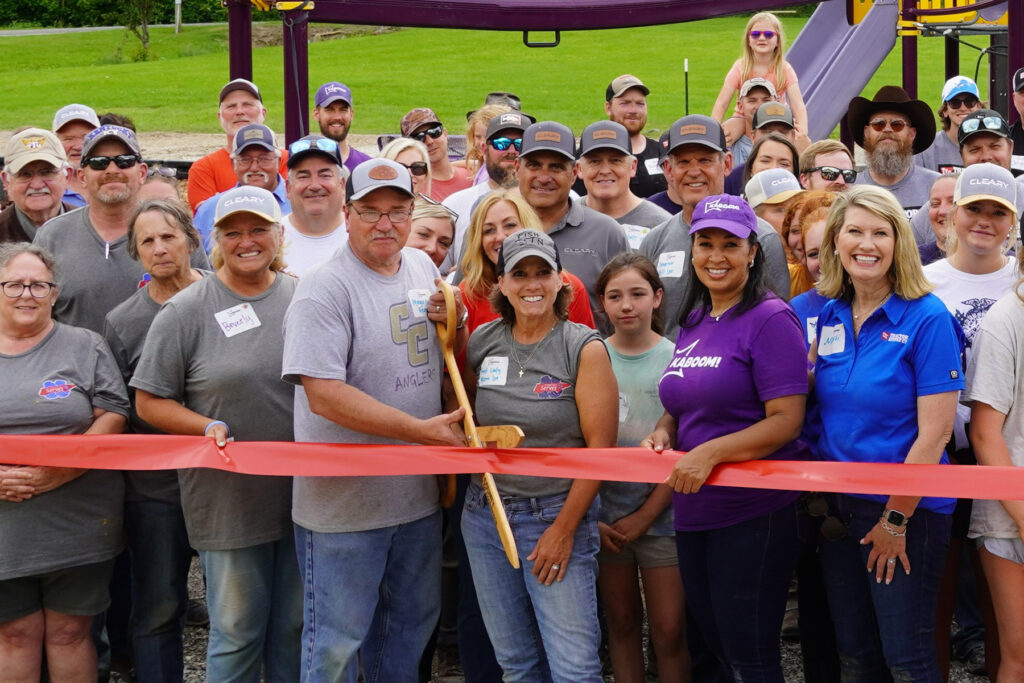
Governor and First Lady Bill and Maria Lee worked with KABOOM! to build a playground in Hermitage Springs, Tennessee as part of the TN Serves initiative spearheaded by the First Lady. This project is a great example of bringing together community service and playspace equity to close the “play gap” in rural communities.
As part of our commitment to the National Strategy on Hunger, Nutrition, and Health, we were proud to join the Harlem Globetrotters to encourage kids and their families to be active and prioritize healthy nutrition. Congresswoman Nikema Williams, the Center for Disease Control and Prevention, the U.S. Department of Agriculture, the CDC Foundation, the National Park Trust, and the Metro Atlanta YMCA joined us for this amazing community play event in Atlanta.
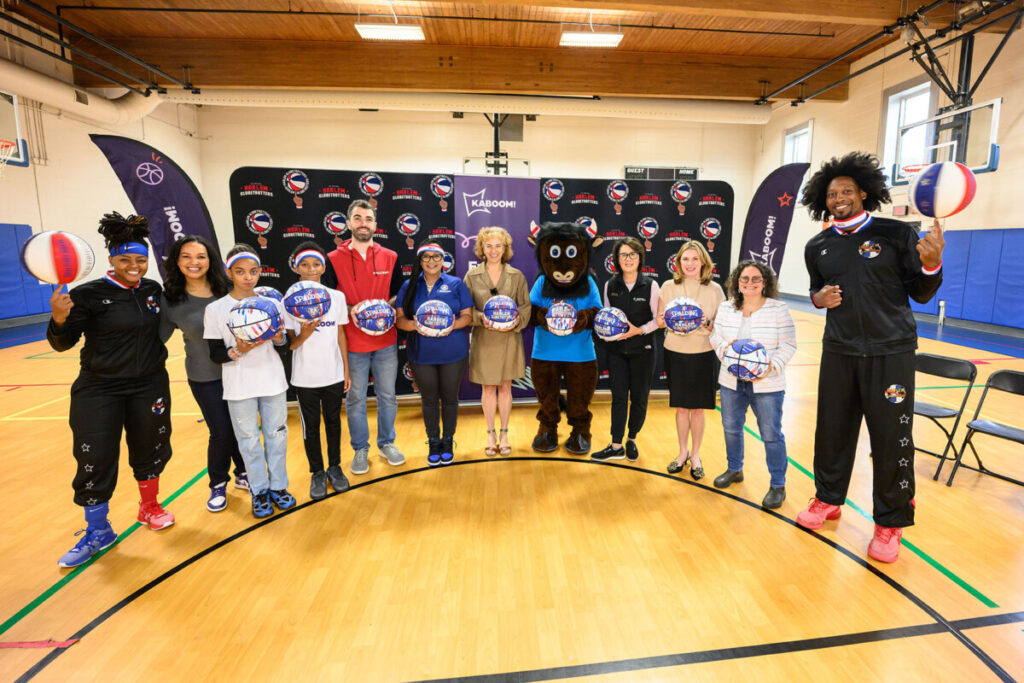
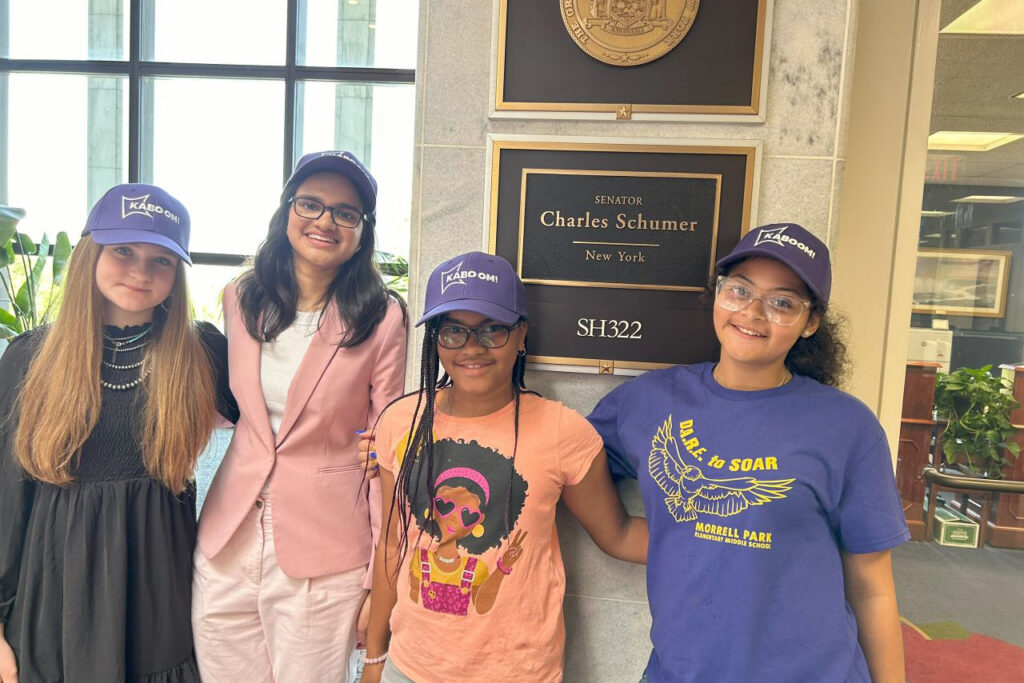
CLIF KID ZBAR partnered with KABOOM! to host four families from different parts of the country for a Capitol Hill Advocacy Day. These young leaders met with the offices of Majority Leader Chuck Schumer and other members of Congress to talk about the important role outdoor play and recreation has had on their lives.
Tamara Grider-Harris, KABOOM! VP of Marketing and Communications, joined Minority Leader Hakeem Jeffries for the New York City Housing Authority (NYCHA) Tenants Advisory Council Leadership breakfast to talk about the important role of outdoor playspaces in creating supportive and sustainable affordable housing solutions for families and joyful places to play for kids in New York
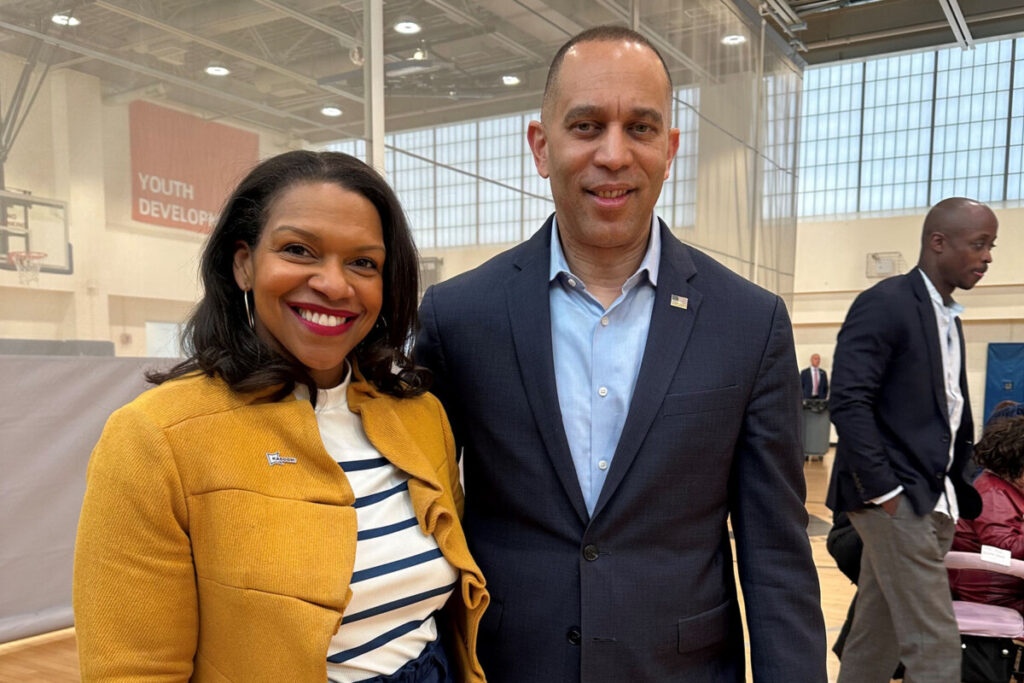
We work in collaboration with other NGOs and lawmakers, at every level of government, to secure support and understand the importance of playspaces perform. Explore our most recent statements, comments, and letters on some of the important policies impacting playspace inequity.
2025 Comments, Letters, and Statements
Percent for Place statement for the support of the CDFI program
Percent for Place Coalition Proposals for the Surface Transportation Reauthorization
2024 Comments, Letters, and Statements
Letter to the Maryland Secretary of Budget and Management on FY2026 Funding Priorities
Letter to Senator Newman in Support of the California Education Bond Bill
Submitted Testimony to the US Senate HELP Committee’s Hearing on Public School Funding
Letter to Senator Sanders and Representative Ocasio-Cortex on the Green New Deal for Public Housing
Submitted Comments on the Proposed Rule Changes to the Community Development Block Grant Program
Submitted Comments on the Creation of an American Climate Corps
Testimony in Support of Maryland SB 151- Prince George’s County Workgroup on Health and Wellness
2023 Comments, Letters, and Statements
Submitted Comments to the USDA Regarding Revised Community Facilities Program Eligibility
Letters to House and Senate on Farm Bill
Letter acknowledging Sen. Cornyn for his support of Uvalde
Submitted Comments on Transgender Student Athlete Regulations
Letter to Senate Committee on Agriculture, Nutrition, and Forestry in Support of SNAP
Testimony in support of Maryland HB 546- Service Year Option Program
Letter to California Senator Newman in support of Mandatory Recess Policy
Letter to President Biden on Food Insecurity and the role of playgrounds as community wellness hubs
Submitted Comments to EPA on playgrounds and climate resiliency
Areas of Advocacy
-
Enhancing Play
We want to make sure that playgrounds can effectively compete for kids’ attention by making them more interactive, engaging, safe to play on, and filled with trees and other nature elements that make the space beautiful.
-
Family Oriented Development
Families need places for kids to play that meet the needs of every family member. Having cool places to sit, gardens that adult caregivers can use, and safe roads and sidewalks that make it easy to walk or ride to their new playspace.
-
Innovative Partnerships
We need governments to embrace innovative public private partnerships (P3s) that allow nonprofits, like KABOOM!, to do our work in an effective and efficient manner, while delivering communities the kinds of playspaces their kids need.
Advocacy Partners
Percent for Place Coalition
KABOOM! is one of over two-dozen nationally and locally-oriented organizations participating in this coalition that advocates for additional federal funding and policies that will ensure an equitable amount of public space is reserved for civic participation and engagement for the purposes of play, learning, entertainment, and exploration.
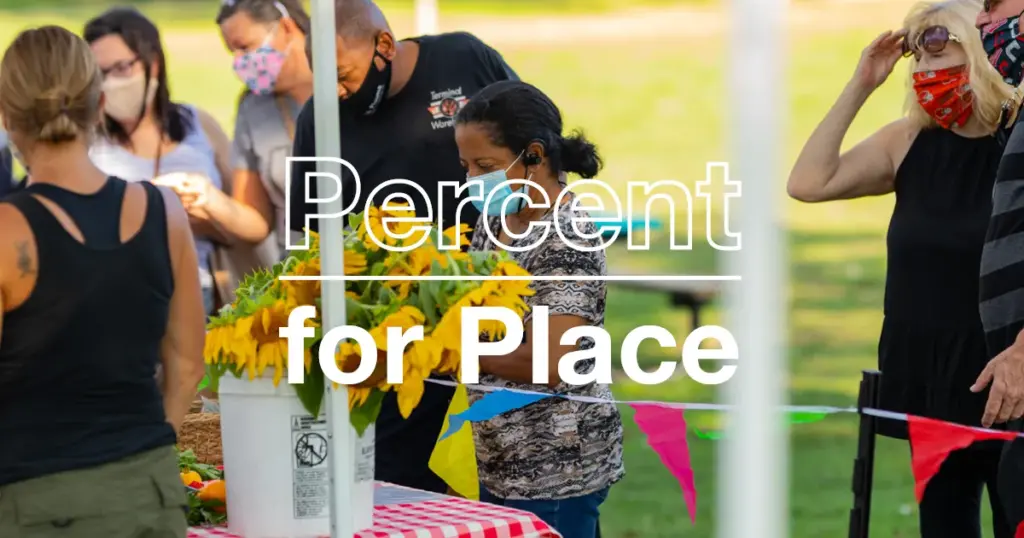
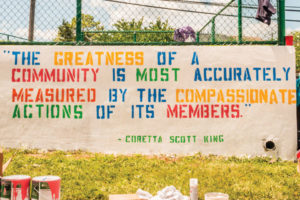
Nonprofit Infrastructure Coalition
In 2020, Independent Sector and KABOOM! formed a coalition known as the Nonprofit Infrastructure Coalition (NIC) to identify, and advocate for, the essential federal investments needed to rebuild the nation in the wake of the COVID-19 pandemic, economic crisis, and ongoing racial injustice.